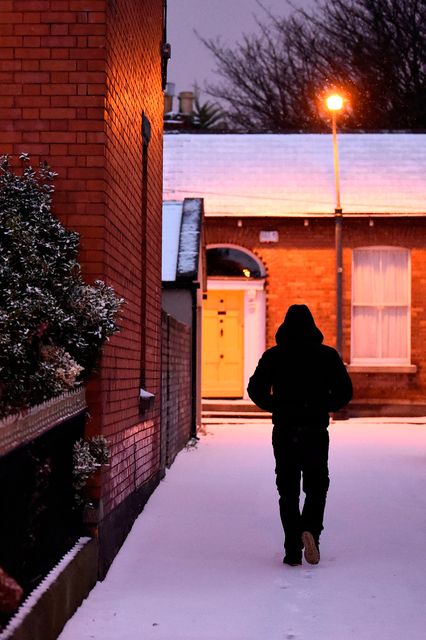Storm Emma: Will I get paid if I can't get to work? What are my employee rights on a snow day?





While schoolchildren across the country rejoiced at the first of the falling snow, there were many workers who were also hoping for a 'snow day' or two.
As Met Eireann issued a Status Red weather warning on Wednesday morning, the Irish SME association (Isme) warned that employers must now decide whether this will be the trigger to shut up shop.
"Unlike Ophelia, we now have the opportunity to prepare for this event," said an Isme spokesperson.
Employees have been advised not to travel to their place of work during Storm Emma if they believe that doing so may be a risk to their safety.
Tragic incidents during previous adverse weather conditions, such as that of Fintan Goss, who was killed when a tree fell on his car during Storm Ophelia, highlight such risks.
But while those commuting to work are being urged to stay at home if necessary, they may not be paid for their time out during the 'Beast from the East'.
Otta the Dalmation dog looks at the fallen snow in Dublin, Ireland February 27, 2018. REUTERS/Clodagh Kilcoyne
A man walks through a street after a snow flurry in Dublin, Ireland February 27, 2018. REUTERS/Clodagh Kilcoyne
Gritting lorries will be out in force as severe weather is expected across Ireland (Niall Carson/PA)
Outdoor staff such as door-to-door sales reps and construction workers could also face additional danger during work hours.
Employers are not obliged to pay staff when they do not show up for work and there are already reports that some have threatened disciplinary action if they do not come in.
According to employment law professionals, employers are not legally obliged to pay staff that do not turn up to work, even in cases where staff are physically unable to make the journey to the place of work.
"Good employment practice would say that an employer would look at such an incidence sympathetically," Labour and Employment law expert, Marguerite Bolger SC, told Independent.ie.
"If the workplace is open but the employee is not in a position to get it, as a matter of strict employment law, there is not a legal obligation to pay them," Ms Bolger said.
"Against the backdrop of a red alert, I would question an employee practice what would dock wages where an employees health and safety is reasonably at risk from travelling to and from work," she continued.
Business group Isme has advised employers whose workers’ contracts allow for a lay-off period to notify them that this could be invoked at short notice later this week.
But unions said most employers paid up despite a high level of absences during Ophelia, and urged workers to think of their safety first.
In situations where an employee is required to remain at home to mind children due to closed schools, again employers are not legally obliged to pay staff.
However, if the workplace itself closes, in those circumstances where employees are being prevented from working, then there is an entitlement to be paid unless there is an express provision in the contract for putting employees on short-term contract, for example on seasonal contracts.
Meanwhile the Small Firms Association (SFA) has advised businesses to put in place an employer policy on absence due to adverse weather.
This should address the situations where employees are unable to attend work, or where businesses have no work available due to circumstances beyond their control, the group said.
"Small businesses must ensure that they have plans in place for the worst-case scenario and that these are communicated to staff," Sven Spollen-Behrens, director of the SFA, said.
"Then it is a matter of monitoring the situation closely and checking the Met Éireann website for updates throughout the coming days. At all times, safety considerations should be paramount."
Mr Spollen-Behrens went on to say that every business was different and that every business would need to make its own assessment as to how best to ensure employee safety and minimise disruption.
Join the Irish Independent WhatsApp channel
Stay up to date with all the latest news




















